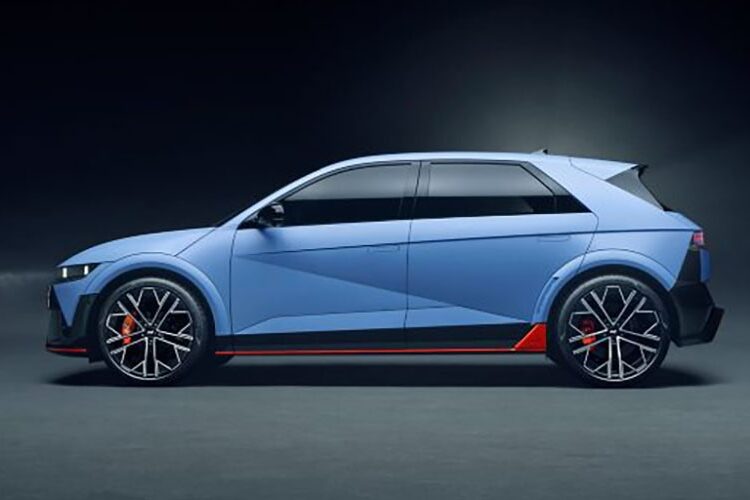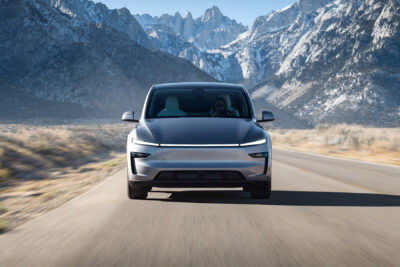Hyundai to cut N label combustion vehicles from lineup
The last examples of the i20 N and i30 N will be on sale until the end of 2024. After that, there will only be electric cars under the N performance label in Europe – starting with the Hyundai Ioniq 5 N. With this step, the manufacturer is preparing the electrification of its model range, which should result in a 100% emission-free product range in Europe by 2025.
The first electric car under the N performance label has been available to order in Germany since the end of 2023. The Hyundai Ioniq 5 N will be launched in Germany from €74,900. Although it is based on the Ioniq 5, it goes its own way in terms of drive: as reported at the launch in July, the twin-motor all-wheel drive delivers up to 478 kW of power. This is slightly more than the 430 kW Kia EV6 GT, which is based on the same E-GMP platform. In addition to the more powerful drives, a revised battery is also used. Hyundai specifies the energy content as 84 kWh, which should be sufficient for a WLTP range of up to 448 kilometres.
With a base price of almost 75,000 euros, the Ioniq 5 N is one of the most expensive Hyundai models to date, but according to the manufacturer, it also comes to customers “almost fully equipped”.
In 2022, Hyundai unveiled two electric N concepts for the first time, the RN22e and the N Vision 74. The former is based on the Ioniq 6, has a 430 kW all-wheel drive system and a 77.4 kWh battery. This combination is already familiar from the Kia EV6 GT.
The second N Vision 74 concept, on the other hand, favours a retro design and a combination of a fuel cell system with a power output of up to 95 kW and a rear-wheel drive system with a power output of over 500 kW. The hydrogen tank should be able to hold 4.2 kg of H2. The 62.4 kWh battery not only serves as buffer storage for the fuel cell, but can also be charged externally – Hyundai spoke of an “800-volt fast-charging capability” at the presentation.
Both concept vehicles were unveiled in 2022 not only as pure show cars, but, according to statements made at the time, are to be used as “rolling laboratories” in which the company’s “advanced technologies are tested and verified in order to apply them to future production models”.





0 Comments